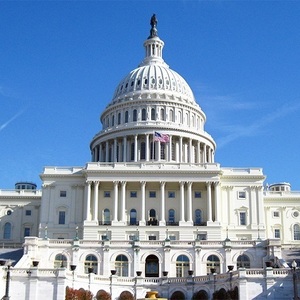Senators to Trump: Direct EPA to reject all calls to waive RFS

May 7, 2020
BY Ron Kotrba
A bipartisan group of 24 U.S. senators, including Sens. Joni Ernst, R-Iowa; Tina Smith, D-Minnesota; Chuck Grassley, R-Iowa; and Debbie Stabenow, D-Michigan, sent a letter to President Trump urging him to direct the EPA to swiftly reject recent petitions from five state governors for a general waiver of the 2020 Renewable Fuel Standard. The National Biodiesel Board and the Iowa Biodiesel Board commended the senators for supporting biodiesel producers, reiterating their conclusion that waiving the RFS will cause unnecessary harm to the rural economy.
“America’s biodiesel producers appreciate the strong leadership of [the senators] in opposing efforts to undermine the Renewable Fuel Standard,” said Kurt Kovarik, vice president of federal affairs for NBB. “Biodiesel and renewable diesel producers are an important part of the nation’s critical agriculture infrastructure, which is already experiencing painful effects of the national economic crisis. Maintaining a strong RFS will be important to the rural economy’s recovery.”
Grant Kimberley, executive director of the IBB, said, “We commend our senators for recognizing that unlike the oil industry, the biodiesel industry had already endured years of hardship and struggle, exacerbated by the administration’s vacillating commitment to the RFS. This has cost real jobs in the heartland and contributed to the farm crisis. We are grateful to Sens. Ernst and Grassley for repeatedly standing up to refiners and defending the RFS, an extremely successful energy policy when working as Congress originally intended. We urge the administration to see through the oil industry’s latest ploy to avoid their legal obligations and return to their unchallenged monopoly on America’s energy supply.”
Advertisement
Advertisement
An RFS waiver would prevent biofuel producers and farmers from fully sharing in any economic recovery this year, Kovarik said. “RFS requirements do not contribute to the crisis,” he explained, “because they are set as percentages that rise and fall in direct proportion with transportation fuel demand.”
Advertisement
Advertisement
Related Stories
The U.S. EPA on July 8 hosted virtual public hearing to gather input on the agency’s recently released proposed rule to set 2026 and 2027 RFS RVOs. Members of the biofuel industry were among those to offer testimony during the event.
The USDA’s Risk Management Agency is implementing multiple changes to the Camelina pilot insurance program for the 2026 and succeeding crop years. The changes will expand coverage options and provide greater flexibility for producers.
President Trump on July 4 signed the “One Big Beautiful Bill Act.” The legislation extends and updates the 45Z credit and revives a tax credit benefiting small biodiesel producers but repeals several other bioenergy-related tax incentives.
CARB on June 27 announced amendments to the state’s LCFS regulations will take effect beginning on July 1. The amended regulations were approved by the agency in November 2024, but implementation was delayed due to regulatory clarity issues.
SAF Magazine and the Commercial Aviation Alternative Fuels Initiative announced the preliminary agenda for the North American SAF Conference and Expo, being held Sept. 22-24 at the Minneapolis Convention Center in Minneapolis, Minnesota.
Upcoming Events










